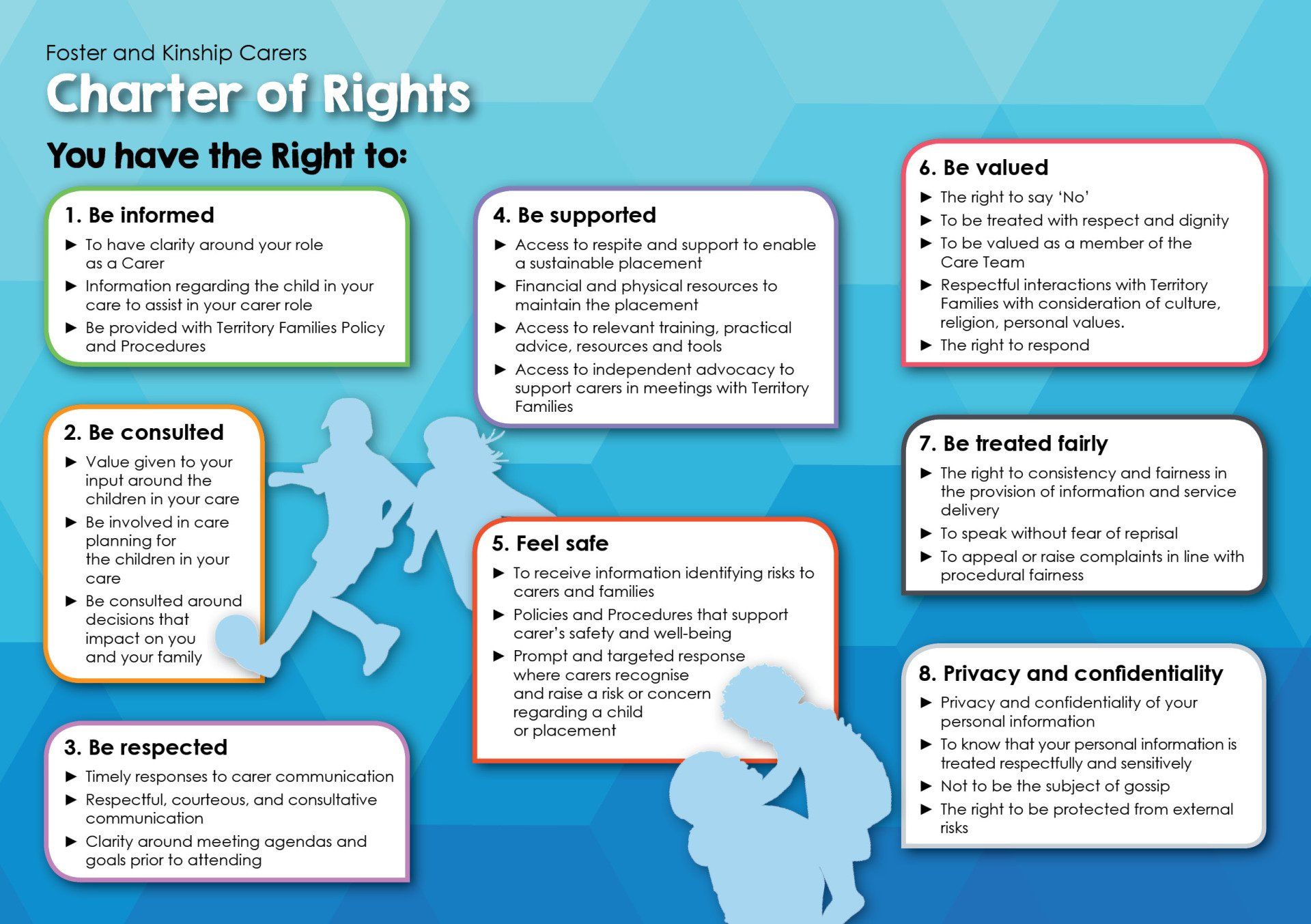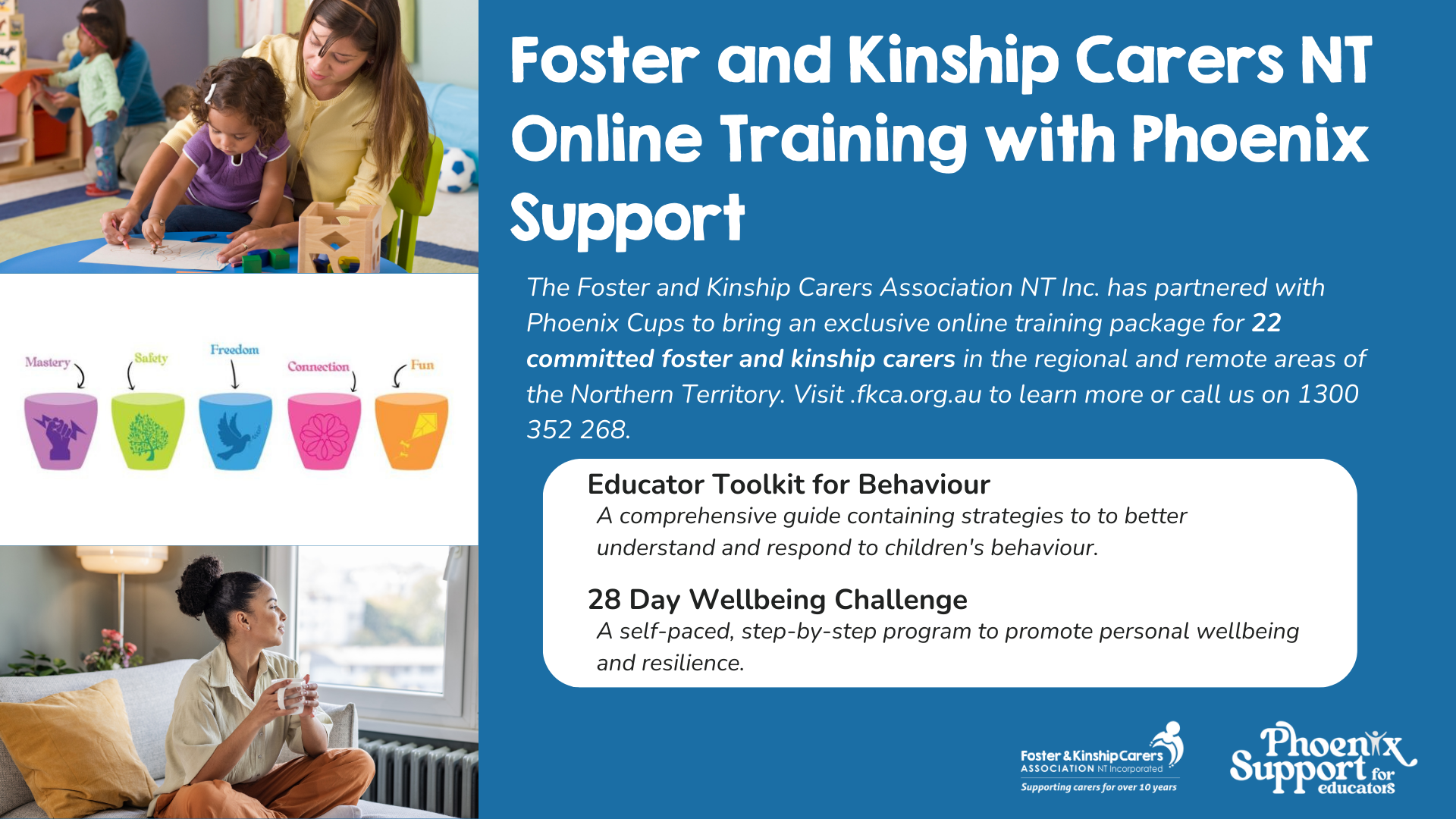1300 352 268
Carer Resources
Carer Handbook
Foster and Kinship Carers Association NT has been involved in the development of the carer’s handbook – a day-to-day booklet from Department of Children and Families that provides new carers with important information that will assist during your care journey in the Northern Territory.
The guide includes important and useful information on your rights as a carer, financial assistance, cultural information, as well as advice on how to manage day-to-day care and wellbeing and other common challenges.
Key Sections for Foster and Kinship Carers include:
- Essential documents Department of Children and Families must provide when a child enters your care (Pages 14-16)
- Decision Making Guide (pages 39-44)
- Cultural Information (pages 47-50)
- Financial Assistance Guide (pages 88-100)
Charter of Rights
Foster and Kinship Carers Association NT and its members worked with the Northern Territory Government to develop the first ever foster and kinship carers Charter of Rights.
The eight key messages have helped to shape reform in the out-of-home care sector and will continue to guide government and decision-makers on how best to support for foster and kinship carers and their families.
The Charter of Rights was developed and launched in 2017 and is a demonstration of systemic advocacy in action.
Legislation, Policies and Procedures
All registered foster and kinship carers sit under Children and Families; the government department responsible for child protection and out of home care services, and support to vulnerable families and children, in the Northern Territory.
Please find the current legislation and policies listed on the Department of Children and Families website
Key policies for Foster and Kinship Carers include:
- Care Planning Policy
- Permanent care order Policy and information sheet
- Reunification Policy
- Travel Policy
- Case management Policy
- Managing children absent or missing from placement Policy
- Transition to independence Policy
Child Safety
The 7 steps to safety is a Northern Territory designed, flexible and child-friendly kit which aims to assist families and their children with skills and confidence to feel, and be, safe at home.
The seven steps are:
Step 1 – Make your place safe
Step 2 – Cool tools for family rules
Step 3 – Feel safe with people
Step 4 – What’s special about our family?
Step 5 – Emergency
Step 6 – Ready yet?
Step 7 – Make a care plan

Stay up to date
on the latest news and events
News Signup
Thank you for subscribing!
Please try again later
DARWIN
ALICE SPRINGS
KATHERINE
TENNANT CREEK
NHULUNBUY
Foster and Kinship Carers Association NT Incorporated proudly acknowledges the traditional owners of country throughout Northern Territory, and recognises their continuing connection to their lands, waters and communities. We pay our respects to Aboriginal cultures, and to Elders past, present and emerging.
© Copyright
Foster Kinship Carers Association NT Inc
ABN 44 523 770 355



